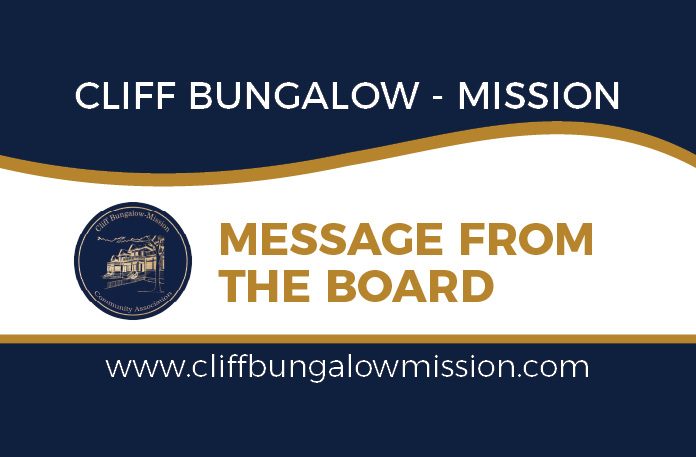Pandemic 2020: What Legacy Will It Leave?
by Ted Knudtson
It is the beginning of April as I write this. The initial shock of the pandemic and resulting social isolation has passed, and people are grimly coming to terms with this new reality and grappling with the uncertainty it brings. How long will this last? When will we be back to work? When will things get back to normal? Will things get back to normal?
I wish I could say we will all get through this, but sadly this just isn’t the case. As this cruel virus preys upon our elders, our sick, and our most vulnerable populations, it will leave many who will not live to see the end of this crisis. There will be businesses that close, never to reopen. There will be industries that struggle to recover. There will be a loss of innocence as we are reminded how fragile life can be, and emotional trauma that will linger long after the pandemic is under control.
Furthermore, this pandemic has brought into sharp relief the inequities extant in our society. COVID-19 is not some great equalizer, as some have suggested. The effects of the pandemic are profoundly gendered (domestic violence has skyrocketed), classist (as evidenced by the deepening poverty and desperation of the poor and working class unable to work from home or distance in suburban homes), and racist (as seen in the disproportionate death rates of black people in the United States and in the dehumanizing treatment of refugees and immigrants throughout the world).
Amidst all of the doom and gloom, however, there could be positive change, as well.
People will have a renewed belief in the need for, and power of, connection with friends, family, and community, for it will be these things that get us through these dark days. Parents are eating breakfast regularly with their kids for the first time many can remember. People are leveraging video conferencing tools to re-engage with far-flung family, having game nights and gatherings from across continents. Community members are reaching out to their neighbours and volunteering with community associations, finding renewed hope in the connection these actions bring.
There will be less focus on material wealth, possessions, and status, for surely we have all seen how little those things sustain us through troubled times. As this crisis fell upon us, many sought a sense of control by spending what they could on food and supplies, only to realize a mountain of toilet paper could not make them feel safe. Instead, as our ability to consume was removed, it was our ability to learn, to experience, to sing, to dance, to love, and to laugh that gave us hope.
For many, the current crisis will encourage reflection on the negative impact human activities have on nature and the planet. As industries grind to a halt, might we see rivers running clean and skies clearing of pollution for the first time any can remember? If so, people will hunger for more, and really believe change is possible. No, the dolphins have not returned to the canals of Venice… but maybe they could!
Never again will anyone be able to dispute the need for a robust, publicly-funded healthcare system. This pandemic has proven all of us are vulnerable and need reliable, accessible healthcare. COVID-19 affects both rich and poor, and it is plain to see that dismantling or diluting the quality of healthcare we have access to will be done at peril to us all.
We will come to understand which professions truly deserve our admiration, support, and fair remuneration. We will truly value our healthcare workers, emergency service providers, and front-line staff in a lasting, meaningful way, and not just when we need them. We will come to know the true heroes in society are not pop stars and elite athletes, but grocery store clerks, social workers, truck drivers, utilities technicians, custodial staff, and every other worker who keep our society running, keep us fed, and keep us safe. And we will pay them accordingly.
This pandemic has shone a light on inequities in our society and made us aware of continuing injustices. Could this be the time we confront these inequities unflinchingly and address them? The truth is we do not all suffer equally, and it is those with more who need to rise to this occasion and play an active role in protecting those with less. As Gandhi said, “The true measure of any society can be found in how it treats its most vulnerable members.”
We will realize that we are, all of us, interconnected and interdependent. We will understand that to serve others is to serve ourselves, and we will do so willingly, selfishly (because it feels good!), and joyfully. We will understand the value of a human life, and we will look upon others and know that there but for the grace of chance or God or fate or circumstance or the universe or dumb luck go I.
There will be many legacies to come of this unprecedented time, some we can imagine, some which are as yet unknowable. But there is one thing of which I am certain: We have the power, each one of us, to start writing these legacies now.
Will this be a time where we devolve into individualism, or will we come together? Will we learn the lessons this pandemic has to teach us, or will we return to our old habits the moment we are able? Will you look back on this time with pride, knowing you rose to the challenge and did all you could support and safeguard those around you? You have the power to decide, right here, right now.
Stay safe, be well, and know that no matter how challenging things may get, it’s going to be okay.










